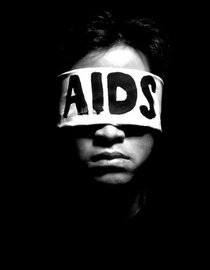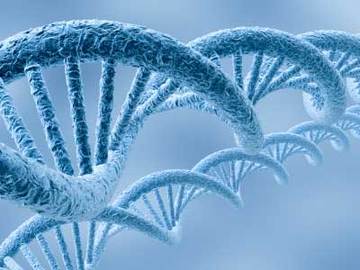What is AIDS?

Acquired immunodeficiency syndrome, or better known as acquired immune deficiency syndrome (AIDS) is a disease related to the immune system of the humans, caused by the human immunodeficiency virus (HIV).
The way it makes a difference between people with HIV and without it is that this virus interferes with the immune system because of which the host is more likely to get infections like opportunistic infections, which are caused by germs that take advantage of certain situations. These infections would generally not have the same affect on people with an active immune system. The vulnerability gets worse as this disease progresses.
You can get lot of information on AIDS online and there are many health organizations which help AIDS victims.
How HIV virus is Transmitted?

There are many ways in which the HIV AIDS virus can transmit from one person to another, such as anal oral or vaginal sex, blood transfusion, contaminated hypodermic needles, exchange of blood between mother and the baby during pregnancy, breastfeeding and childbirth. It can also transfer by any contact of a mucous membrane or any contact of the bloodstream with a bodily fluid that too has the virus, like blood, breast milk, semen, vaginal fluid, etc. For detailed information on AIDS virus contact your health services AIDS department.
The Spread, Symptoms and Treatment of HIV/AIDS Virus
HIV/AIDS has been a source or worry in many countries, and is by most considered a pandemic (an outbreak of contagious virus that is spreading rapidly through human population over a large area). It has been estimated by the World Health Organization (WHO) that in 2009 33.4 million people worldwide have HIV/AIDS, with a shocking 2.7 million new HIV infections per year and 2 million annual deaths due to AIDS.
The genesis of this deadly disease has been trailed to west-central Africa where it originated during the late nineteenth and/or early twentieth century. AIDS was first recognized by the U.S Centers for Disease Control and Prevention in 1981 and its cause, the HIV was identified in the early 1980’s.
The signs or symptoms of AIDS are chiefly the result of circumstances that do not usually develop in people with a hale and hearty immune system. Most of these circumstances are infections that are caused by viruses, fungi, parasites and bacteria. Which are generally controlled by the immune system that the HIV damages.
The opportunistic infections on the other hand are common in people with AIDS, and as such affect nearly every organ system in their body. An increased risk of developing a cancer such as the cervical cancer, the Kaposi’s sarcoma and lymphomas (cancers of the immune system) additionally AIDS affected people often have systemic symptoms of infections such as fevers, sweats (particularly at night), swollen glands, weakness, weight loss and chills.
Although the treatment of HIV/AIDS can slow down the process of the disease, there is no known cure or any HIV/AIDS vaccine. Antiretroviral (medications for the treatment of infections by retroviruses, primarily HIV) treatment reduces both the deaths and new infections from HIV/AIDS, but these drugs at the time being are very expensive and not available in all countries. As there is no permanent cure for this disease, at present, controlling its spread is the best way of preventing infections from HIV/AIDS.
Most people have little or no information in this regard, facts on AIDS are very important to be familiar with, as many lives can be saved in this way.
Comments
Most Recent Articles
-
How To Diagnose Diseases Aids Hiv
The diseases HIV and AIDS are human viruses that can lead to other serious issues. AIDS, which stands for acquired immune deficiency syndrome, infected 58,000 people in America in 2010 accor...
-
Medical Programs For Aids Research
AIDS have been causing great alarm to people all over the world. Since the pandemic started in 1981 on AIDS there is no stopping people and countries to conduct studies and researches that a...
-
3 Most Dangerous Diseases That Affect The Blood
Our immune system made from a network of cells and chemicals. It keeps us protected from foreign bodies that may lead to disease. These cells are able to distinguish particles. They reac...
-
Five Types Of Common Sex Diseases
Sex diseases are widely called as sexually transmitted diseases and popularly known as STD. It is also referred as venereal diseases. However, considerable population is more likely to get c...
-
Aids Health Studies
AIDS is a devastating disease the is killing so many people. It is estimated that around five thousand people die every day from this horrible disease. Disease control agents work tirelessly...
-
About Health And Aids
AIDS (otherwise known as Acquired Immunodeficiency Syndrome) has become a widespread epidemic killing more than 28 million people that are known since it was first discovered in 1981 in Afri...
-
About Getting Free Testing For Aids
Testing AIDS are utilized to identify the presence of HIV or human immunodeficiency virus. This virus causes AIDS or acquired immunodeficiency syndrome in saliva, urine or serum. These tests...
-
Can the Police Force a Person To Have Testing For Aids?
Acquired Immune Deficiency Syndrome (AIDS) is caused by the Human Immunodeficiency Virus (HIV). This illness weakens the human immune system and people with AIDS are more likely to get infec...
-
How To Know If You Have Infectious Diseases Hiv
HIV is the virus that causes AIDS. HIV stands for human immunodeficiency virus. When the HIV virus enters the body it multiplies rapidly and starts attacking the body in such a way that it g...
-
Most Common Treatment For Hiv Diseases
Development in the field of medicine together with in-depth research and analysis has provided numerous benefits to mankind. The result of such clinical and technological developments identi...
-
History Of the Aids Virus
The human race has encountered a disease that is the magnitude of a pandemic. AIDS, as it is commonly referred to, is acquired immune deficiency syndrome that is caused as a result of ...
-
History Of Aids Research
AIDS as a term for a disease was not commonly heard by many people during the 80s, but as it took over many lives around the world, it became a familiar term. To better understand what AIDS ...
-
About World Aids Day
People are aware that there are diseases that are not curable. Treatments may be present for these incurable diseases but they can only try to make the disease and its effects manageable. Al...
-
How Much Does A Banking Cord Blood Cost?
Cord blood banking is a process that involves the collection and storage of fluid from the umbilical cord. It undergoes strict testing procedures for virulent factors like HIV, Hep...
-
About Prevention of HIV
You many not be aware that HIV is one of the deadliest diseases affecting people. It slowly weakens a person's immune system until such time that the complications of having a weak body wi...